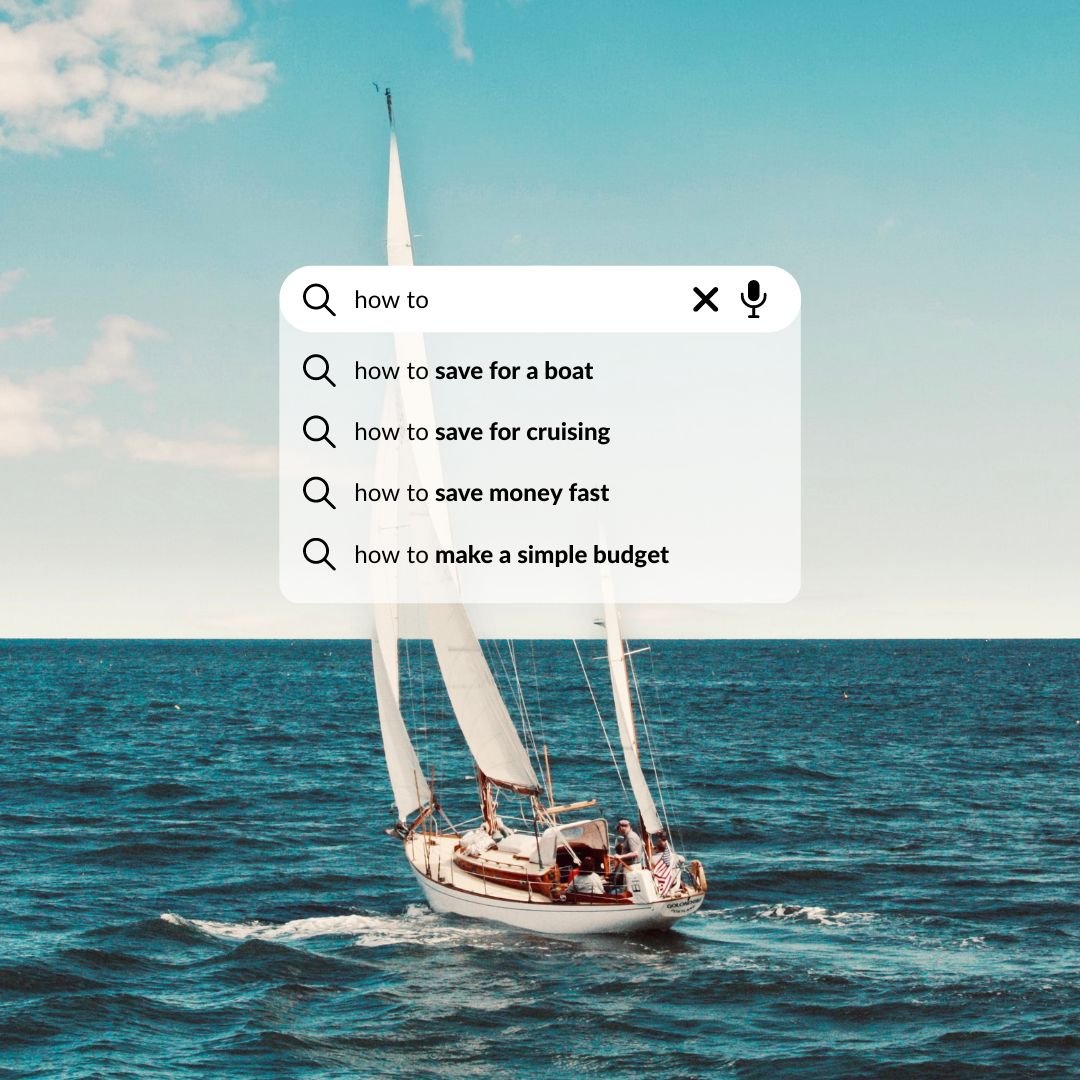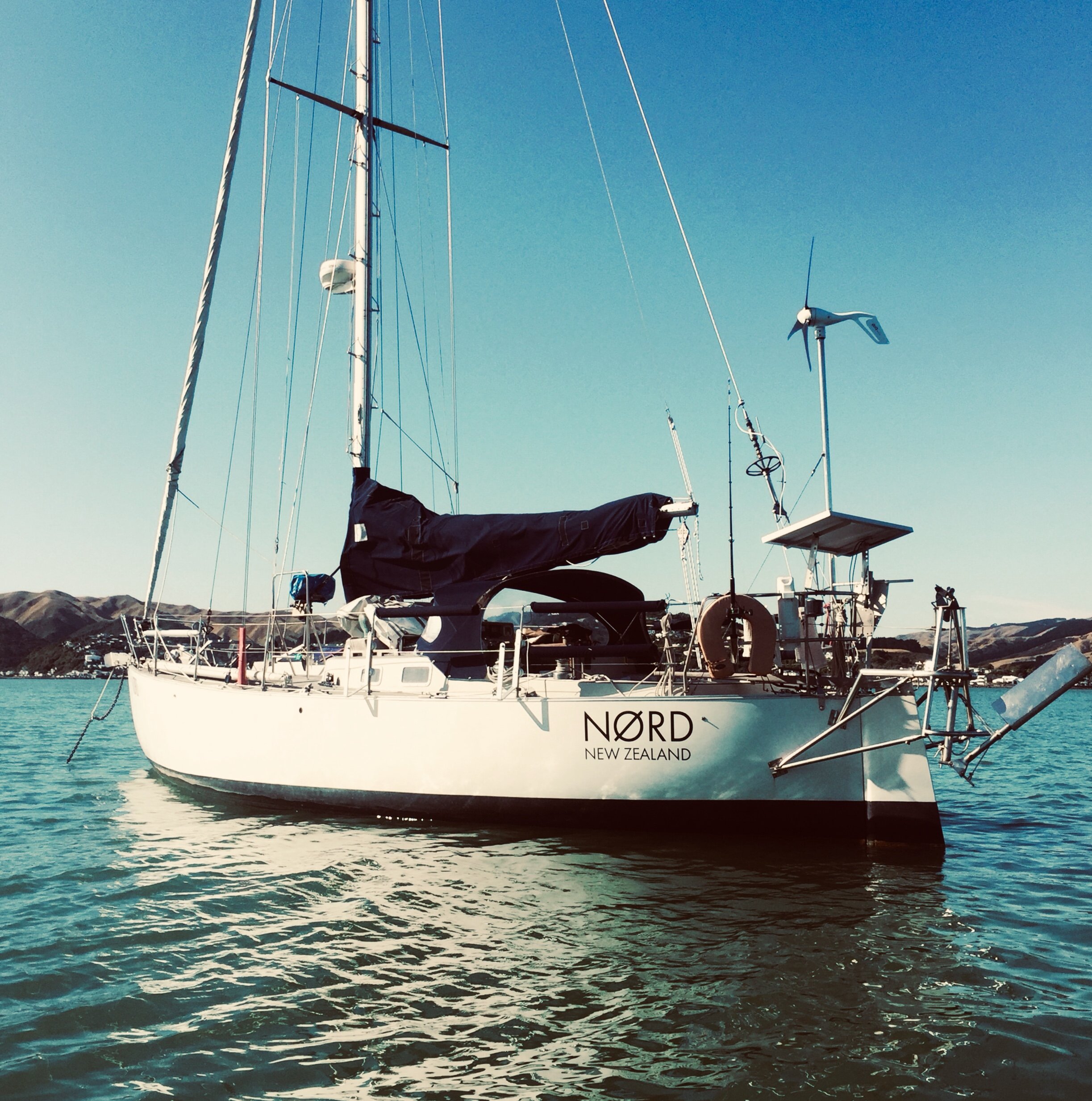85+ Ways To Make Money While Cruising
If you click on my affiliates/advertisers links, I’m going to receive a tiny commission (at no extra cost to you) and you’ll help keep Saltwater Journal going. Thanks!
You’re dreaming of setting sail and going cruising full time – you’re totally sold on the lifestyle and the adventures you know you’ll have but there’s one main problem. Money. Assuming you can buy your boat, how do you then actually fund your cruising life? It feels rude to ask but how are people actually paying their way?
Of all the local and international cruisers I’ve met, there’s three distinct categories that have evolved for how they’re funding their sailing experience.
Cruising while living off a lump sum of savings – when that runs out, they return to work
Cruising when retired — living off life-savings or passive income eg. rental properties, investments, pensions
Cruising while working
So, are you going to play the long-game or the short-game? An example of the long-game is where you work your butt off for years to save or buy investment property, or create a sustainable income system which allows you to travel and enjoy your cruising without your daily work input. Waiting until you’ve retired could also be considered playing the long-game. This can take years, possibly decades to play out.
The challenge is no one knows exactly how much time we have on this rotating globe called earth — but it’s finite. Plenty of folks have delayed setting sail until retirement or until a bank balance goal has been reached – only to miss their chance.
The short-game is about going sooner rather than later by setting a two or three year goal to get some money together, and an idea of how you can work underway or by living off limited savings. The focus for short-gamers is to be out there, now. This carpe diem-esque approach offers room for new opportunities, but there’s a level of financial uncertainty for ‘down the road’.
To be honest, there’s no right or wrong approach and you’ll have your own gut reaction to these game plans and what feels right for you. But I certainly want to encourage you to be creative in figuring out how to get cruising — sooner. The great news is that if you’re wanting to work remotely or provide a service while you travel, there’s plenty of ways to do this. Often, it’s just a matter of thinking outside the box and translating the skills and life or work experience you already have, into a helpful product or service that you can offer.
You may decide to upskill or learn a new trade before you set off cruising — one that will help you with your own boat, and other peoples. I’ve created the most comprehensive list you’ll find on the best roles, jobs and services that transfer well to the cruising life. Here you’ll find a great variety of business ideas and tips for creating income while living aboard.
Important: Not all of these will create a full-time income, but you can combine a couple of roles to make enough to keep you sailing, OR if you play your cards right within your profession, you can build a highly successful remote business. It will be hard work either way — whether you’re on land or water. You’ll need to be determined, have patience, put yourself out there and stay focussed and positive to make money while you cruise. It’s all do-able though! And there’s plenty of us out here loving it.
Are you currently working on land?
How could you relocate your role somewhere new or translate your current job skills into a freelance position?
Before you pack in your job to go cruising there may be some options available for you to keep your role going while you travel.
Consider:
Can you arrange with your employer to work remotely?
Is there another branch in a different country you can transfer to?
Can you subcontract your position?
Can you contract or freelance back to your employer (and set your own working terms)?
Is there a way to monetise your experience in this role?
What if this was your new office scene?
How about a compromise?
Work six-months and cruise six-months.
If you’re in a contract position, have a flexible employer or are self-employed, how about creating a plan for working six-months and then cruising six-months? Or a year on, year off — or whatever term works for you? I have friends that keep their yacht on the hard in Indonesia for half the year while they work back here in New Zealand — and then fly back to their yacht. Depending on where you’re based, there’s always different options for boat storage while you work.
Or, you could base yourself for longer periods at each place you visit in order to work ashore. This is an option that can work well for professionals such as school teachers or nurses and doctors who can arrange short contracts or temporary relief work. Which can often be very lucrative!
Some cruisers actually prefer having a set time period to focus on work – it lets them get really stuck in, concentrate on their role and work a lot of hours, and then when it’s done they can get out there cruising again and switch off 100%.
Or are you looking for a fresh start and have skills in one of these areas below to build on?…
85+ Remote jobs and service ideas
Make an online course in an area of your expertise
Publish an e-book
Create and sell physical or digital products
Design clothes
Sew
Design and make jewellery
Create and sell handcrafts
Freelance writing
Copywriter
Copy editing and proofreading
Translating
SEO services
Social Media Manager
Teach English
Tutor online
Mentor
Write resumes
Data entry
Travel consultant
Artist
Graphic & Web Design
Illustration
Programme coding
Software engineer
Design an app or game
Digital Marketer
Tech support
Stock trading
Video editing
Photography
Videography
Virtual Assistant
Transcriber
Rent out your assets
Create a webs series, travel vlog or podcast
Start a YouTube channel (not necessarily sailing related!)
Create a blog
Affiliate marketing
Brand partnership
Legal advisor
Insurance consultant
Accountant
Street performances (singers/musicians)
Seasonal work
Scuba instructor
Freedive instructor
Surfing instructor
Music teacher
Relief teaching at local schools
Dog/pet sitting onland or for fellow cruisers
Dog grooming
House sitting
Cleaner
Therapist
Dentist
Masseuse
Personal trainer
Yoga teacher
Host a retreat
Travel nurse
Beautician
Hairdresser
Chef
There’s plenty of work to be found if you’ve got marine and boating experience
Marine Specific roles
Skipper
Boat deliveries
Teach boat handling skills
Marine refrigeration
Marine electronics
Sail repairs
Service winches
Teak repairs
Engine maintenance
Mechanic
Upholstery
Canvas work
Boat washing/cleaning
Plumbing
Rigging services
Splicing and whipping
Hull cleaning
Gas fitter
Crew for other yachts
Private charters
Get creative about things you can rent out to build some extra income
Extra cash ideas to help fund your cruising
Rent out a spare room in your house
Have a garage but no car? Rent out the space
Spare bikes or tools can be rented out too
Host an international student
Have a home in a great location? Air BnB it on local event weekends or holidays
Sell everything you don’t need
Working onboard is all about compromise but it’s worth it
Tips for working while you’re cruising
Set your business up early. It’s helpful to do as much preparation as you can to get your service/business/product up and running before you go sailing. Having clients already lined up and your systems already in place makes life much easier.
You can:
Test your products
Try things out and get feedback
Upskill/Get certified
Ask for references/testimonials
Set up your online profiles — social media, LinkedIn and networking sites
Create a website for your services
Print some business cards or pamphlets to hand out to cruisers or while ashore
Get rid of any debt. Live as frugally as you can and throw as much as you can into becoming debt free as quickly as possible. Cruising without worrying about repayments and interest is much less stressful and lowers the amount you’ll need in the kitty while you’re on the water. It also frees up money so you can factor in a savings plan to your budget. Learn how to create a sailing budget.
Invest. Even on a small income, having a savings and investment plan is smart. Having a back-up fund that grows while you sleep will give you more options the older you get — and we’re aiming to make retirement right?! I highly recommend having a chat to a financial advisor who can help you reach your goals.
Check out the legalities and tax laws for wherever you’ll be working. Some cruisers fly (or sail) under the radar, but you don't want to get caught out.
Trading is fun. Cruisers are great at swapping food, services and skills in lieu of money — which is a win/win for everyone. Dollars aren’t king – relationships and reciprocity, learning from each other and good experiences are. On that note – cruisers are awesome people and willingly give time and help without expecting anything in return (although I don’t know anyone who’s refused a cold beer!). Let’s foster the spirit of generosity and not be too quick to ask for payment.
Research internet connection and reliability before you go. There are definitely advancements in satellite technology with the development of Starlink but there’s still some way to go before its mobility (and affordability) is suited for cruisers.
Ensure you’ve got enough power onboard to run your business. Charging laptops, cameras, printers and any electrical devices you may need uses more power than you may think. Think about whether any upgrades to your onboard power supply might be needed. On our yacht, we installed a small inverter to charge my MacBook and increased our solar supply.
Ease into the lifestyle. Why not try it out first and start by cruising locally for a set time? You don’t have to sail to the other side of the world to experience the benefits and joy of cruising. And it’s a great way to find out what systems you need in place (internet/clients etc) — what works, what doesn’t and whether it is indeed all you’d hoped.
Keep your costs down so you don’t need to earn as much to cover your cruising budget. You could:
Do your own maintenance and repairs
Anchor rather than stay in marinas
Each what you catch and food forage locally
Cook your own food instead of eating out
Be open to compromise. Sometimes you’ll need to stay anchored in an area longer if the internet’s good, or there’s lots of local work. Sometimes you’ll have a client meeting on a perfect sunny day, and everyone else is out swimming. Sometimes, you won’t have access to parts or materials or you miss an opportunity because you’re out of signal. But you’re also working on your own terms, exploring new places, discovering nature, feeling the adventure and meeting new amazing people the whole way — and that’s totally worth the compromises!
However glamorous it sounds to be working from your boat? Halve it. Thinking laptop under a palm tree? Not quite… I’ve experienced the panic of trying to find a space to dock in the only visitors pier with WiFi for miles (in a no anchor busy port zone) with only 20mins to go before a brand presentation to a number of Australasian hospital CEOs all while grabbing lines, fixing my salty hair, throwing on some lippy and running over my well-rehearsed designs ready for Zoom…nice shirt on top, wet weather leggings out of sight. They received the professional version of me, but the reality of sailing to deadlines and being a solopreneur at sea isn’t particularly glam.
Lunch break ashore turned into an afternoon siesta in the shade
We’ve don’t have any regrets about giving it a go
How are we doing it?
Jeff’s a high-school art/tech design/photography teacher and I work as a creative freelancer specialising in graphic and web design and bespoke book publishing (and I run Saltwater Journal). We lived on our yacht for 4 years in a marina while working locally, and saved like mad so that we could take a year off work and cruise New Zealand. We’re calling it our ‘sailing sabbatical’. It’s giving us a great sailing experience and we’re learning more about our boat and what we need to make long-term cruising comfortable and viable. We’re also discovering some great new places that we’d be happy to stay a while longer at while we build up the kitty to sail to new countries in future.
In Summary
There’s no rules to how cruising life should be or what it needs look like (despite what you may see on YouTube!). You could work your way around the world from marina to marina working ashore if you wanted. Or you could work in the winter, and cruise in the summer. Give it a go, try different things out. See what works for you just don’t be a slave to work, or what you think is expected of you as a cruiser. Most importantly, have fun with your life and enjoy your time on the water.
















Discover the most extensive list of boat sale websites to help you in your search to buy a boat, and learn new places to look locally, nationally and world-wide.